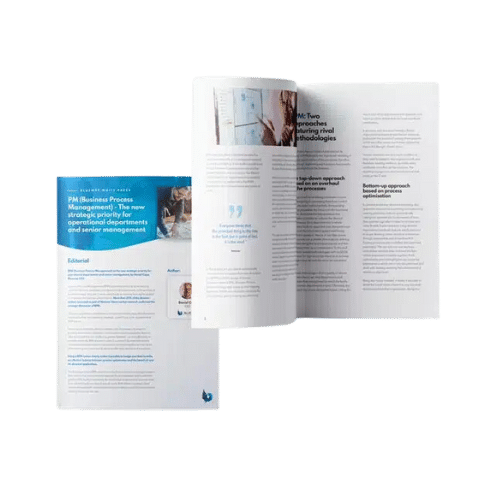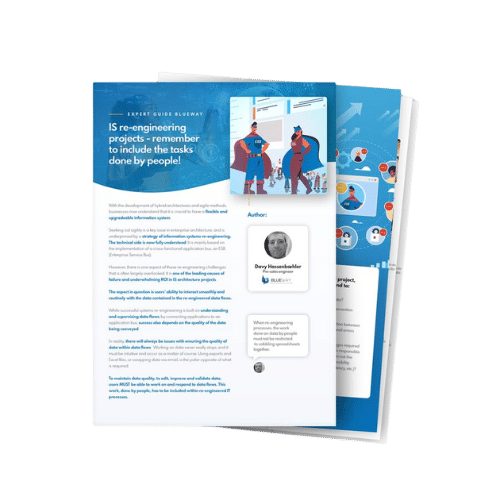The administration departments in an organisation work on large numbers of management processes in conjunction with all the other departments in the business. It is in these other departments that the potential gains from process optimisation are often the most significant.
What does optimisation
of administrative processes mean?
When discussing automation of low added-value tasks, the inference is very often administrative tasks, manual data entry and tiresome checking work. However, administrative processes play a central role at the heart of businesses. These processes form the organisational backbone: audit, supplies, the mail room, meeting room bookings, cleaning & maintenance, secretarial work, filing, working conditions, etc. This generic term covers an extremely diverse range of work and processes.
It is precisely because administrative processes are essential to the smooth running of the business that a distinction needs to be made between time-consuming tasks of no added value and the work that should continue to be done by people. Optimising processes therefore means affirming the value of administrative staff while increasing quality and productivity.
More generally for the company, it is also an opportunity to eliminate the bottlenecks that some of these processes can constitute. Such bottlenecks are an issue not just for the administration department concerned, but for the whole business.

Download our white paper on Business Process Management.
Behind the general idea of automating data entry, structuring workflows and concentrating human effort on adding value, the major areas for administrative process optimisation are:
- See a different perspective and improve your working methods by modelling processes at a functional level
- Eliminate manual data entry and any unnecessary tasks in general
- Go paperless – digitalise information and data flows for ease of use and greater consolidation possibilities
- Improve access security, ensure the long-term safety of data, provide an audit trail
- Automate and accelerate data flows, the circulation of information and alerts
- Include administrative processes within the overall information system
Order book management: a common example of administrative process optimisation
Taking the example of processes linked to the consolidation of order books within wholesale companies or manufacturing subcontractors, administrative staff have to regularly go to the websites of various clients and partners and consolidate new data with any data previously collected, taking into account any changes there might be to information already stored.
This whole process entails a great deal of manual work, including repetitive double-checking and making minor changes: retrieving source data in different formats (Excel, screen shots, manual re-entry of data) before comparing them with the current order book (or the previous version) and then making adjustments in the ERP system, taking each open order one at a time. The majority of these and many other operations can be automated with the Blueway platform which combines BPM (Business Process Management) with application bus solutions, MDM (Master Data Management) and API Management.
In the same way, the processing of checks (availability of stock or goods inwards) and special cases (“exceptions”) can be handled using the complex business rules engine and displayed to users.
Data flow orchestration is particularly useful for admin staff who can quickly see reductions in the time they spend on tasks of little or no added value, and who are able to spend more time dealing with more complicated matters of greater benefit to the performance of the business.

Download our expert view on architecture re-engineering.
ROI (return on investment) from the Blueway platform through administrative process optimisation
With a platform like Blueway, data collection, formatting, comparison with existing ERP data and presentation on clear and practical screens for users all mean that data can be amended and edited much more quickly by admin staff. They can then also take whatever steps are needed to update open orders in the ERP system or any other relevant applications.
Return on investment from the Blueway platform is typically achieved in less than one year.
Beyond this quantifiable benefit, quality of service, traceability of data exchanged and statistics on changes to orders for each individual supplier enable the business to more readily adjust to changes in the portfolio and be more proactive.
Lastly, the Blueway platform incorporates some preconfigured administrative processes such as automated order building and the initiating of batched invoicing runs

Want to discuss Business Process Management with an expert?



